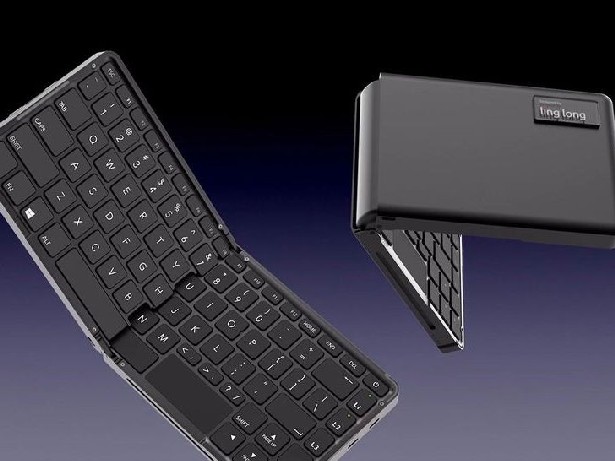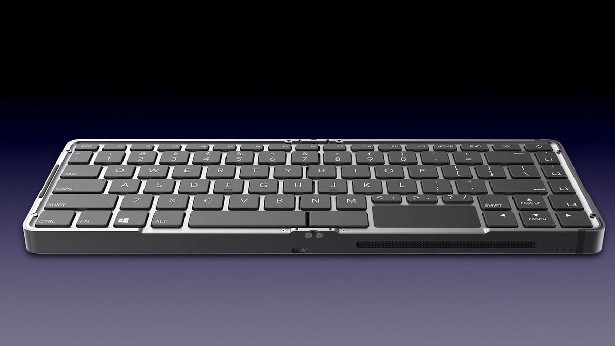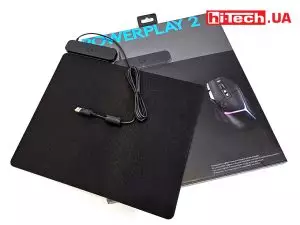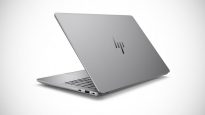The LingLong mini-computer keyboard is based on AMD Ryzen 7 8840U
12.07.24
The Chinese manufacturer LingLong has announced a portable computer in an unusual form factor. The device is equipped with an AMD Ryzen 7 8840U processor and is contained inside a small folding keyboard with a width of 15 cm, which allows you to carry it even in your pocket.
The manufacturer calls this computer the best mobile device of the future. The overall dimensions of the LingLong mini-PC are 15 x 10 cm and weigh 800 grams. Inside, you can install 16 or 32 GB of RAM and an NVMe 2230 drive up to 1 TB. The device has three USB ports: USB 3.0 Type-A, USB 4 Type-C and USB 3.2 Type-C. It supports Wi-Fi 6 and Bluetooth.
The battery with a capacity of 16000 mAh provides up to 10 hours of battery life for office use, up to 6 hours for watching videos and 4 hours for heavy use and games. The keyboard has a built-in trackball, so it is not necessary to use a mouse. ![]() The device does not have its own screen, but can be connected to an external monitor or TV.
The device does not have its own screen, but can be connected to an external monitor or TV.

Instead of bulky displays, LingLong suggests using a mini PC together with AR or VR glasses. The device is priced at 2,999 yuan ($412) for the base version and 3,599 yuan ($495) for the top-end version.
Don't miss interesting news
Subscribe to our channels and read announcements of high-tech news, tes
Logitech G Powerplay 2 wireless charging pad review

Logitech has great wireless mice, and there’s also the G Powerplay 2 wireless charging mat that will keep them charged right while you’re using them.
Google Drive for Windows now works on ARM-based Windows devices Google Windows
Google announced that the Google Drive app for Windows is now available to all users of ARM-based devices, including Snapdragon X Elite and X Plus chipsets.
HP ZBook Ultra 14 laptops with AMD Strix Halo hybrid processors AMD HP laptop
HP has introduced a new series of ZBook Ultra 14 laptops, built on the basis of AMD Strix Halo hybrid processors.


